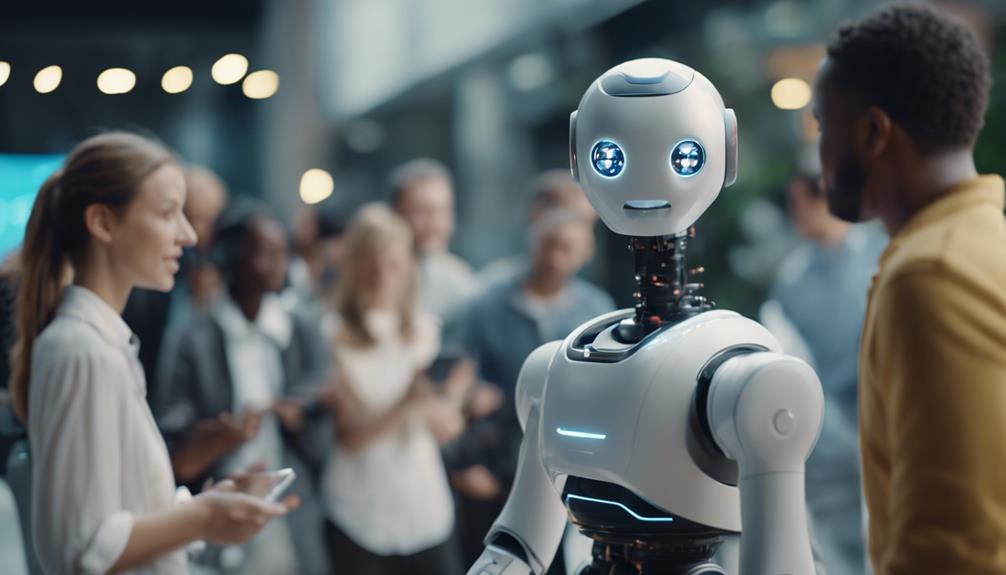Artificial Intelligence in Jeddah
AI Applications in Various Industries in Jeddah

Evolution of Artificial Intelligence Techniques
How have artificial intelligence methods evolved over time to shape modern technological advancements?The journey of AI methods began with symbolic approaches and problem-solving techniques in the 1950s, laying the foundation for the development of advanced algorithms. DARPA's involvement in street mapping projects during the 1970s marked significant progress in applying AI practically. Over the years, AI has shifted from basic problem-solving to more complex tasks like pattern recognition, driven by continuous research and technological innovations.One of the key advancements in AI methods has been the rise of machine learning algorithms, particularly neural networks. This evolution has led to the emergence of deep learning, a subset of machine learning that focuses on training data to enhance decision-making processes. Additionally, AI methods now include computer vision for image recognition and unsupervised learning for identifying patterns without labeled data. The fusion of these methods has propelled AI to new heights, enabling it to tackle a wide array of tasks efficiently and effectively.Impact of AI on Society in Jeddah

Ethical Considerations in Artificial Intelligence
Considering the intricate interplay between technology and ethics, examining the ethical implications of artificial intelligence (AI) is paramount in shaping a responsible and equitable future. Ethical considerations in AI encompass a range of critical issues. Bias in algorithms is a significant concern, as it can lead to discriminatory outcomes in decision-making processes.Transparency in AI systems is vital to understand how decisions are reached and guarantee accountability for ethical standards. Data privacy is another key aspect, with worries about the security and consent surrounding the collection and utilization of personal data in AI applications.Fairness and equity in AI implementation involve tackling societal biases and ensuring just outcomes for all individuals affected by AI technologies. To address these concerns, ethical AI frameworks and guidelines are being developed to promote responsible AI practices and mitigate potential harm to society and individuals.It is imperative to navigate these challenges thoughtfully to foster a future where AI operates ethically and equitably.Future of AI and Superintelligence

Frequently Asked Questions
What Are 4 Types of Artificial Intelligence?
The four types of artificial intelligence include Weak AI, focused on specific tasks; Strong AI or artificial general intelligence (AGI), aiming for human-like cognitive abilities; Artificial super intelligence (ASI) surpassing human intelligence; and Machine learning enabling systems to learn autonomously.How Is AI Being Used Today?
AI is revolutionizing various sectors like healthcare, finance, transportation, customer service, and agriculture. It aids in diagnosing diseases, fraud detection, autonomous vehicle navigation, chatbots for customer service, and precision farming. AI applications continue to enhance efficiency and innovation across industries.Can You Explain Artificial Intelligence?
Artificial intelligence demonstrates the emulation of human cognitive processes by machines. It encompasses tasks like problem-solving, learning from data, and applying knowledge to automate functions. AI's evolution and significance span various sectors, enhancing efficiency and innovation.What Is 1 Example of Artificial Intelligence?
One prominent example of advanced technology is IBM's Watson, known for utilizing natural language processing and machine learning to analyze data and offer valuable insights. This cutting-edge system showcases the power of innovation in data analysis and decision-making processes.Jeddah Artificial Intelligence: A New Frontier in Technology
Artificial Intelligence (AI) has become a major player in the field of technology, and its influence continues to grow throughout the world. In the city of Jeddah, Saudi Arabia, AI has emerged as a key focus for innovation and development, with various companies and organizations investing in this cutting-edge technology.
The Rise of AI in Jeddah
In recent years, Jeddah has seen a significant increase in the use and application of AI across various sectors. From healthcare and finance to transportation and education, AI is revolutionizing the way businesses and industries operate in the city. The adoption of AI has led to improved efficiencies, better decision-making processes, and enhanced customer experiences.
The Impact of AI on the Economy
With the rise of AI in Jeddah, there has been a notable impact on the economy. The integration of AI technologies has led to job creation, increased productivity, and a boost in innovation and competitiveness. As a result, Jeddah is positioning itself as a leader in the global AI market, attracting investment and partnerships from international tech companies.
The Future of AI in Jeddah
Looking ahead, AI is expected to continue its rapid expansion in Jeddah, with advancements in machine learning, robotics, and data analytics. The city is poised to become a hub for AI research and development, with a focus on fostering local talent and nurturing the next generation of AI innovators.
Conclusion
The emergence of AI in Jeddah represents an exciting opportunity for growth and advancement in the field of technology. With its potential to transform industries and drive economic prosperity, AI is set to play a pivotal role in shaping the future of Jeddah as a vibrant and technology-driven city.
Other Services in Jeddah
Jeddah ( JED-ə), alternatively transliterated as Jedda, Jiddah or Jidda ( JID-ə; Arabic: جِدَّة, romanized: Jidda, Hejazi Arabic pronunciation: [ˈ(d)ʒɪd.da]), is a port city in Makkah Province, Saudi Arabia, located along the Red Sea coast in the Hejaz region. Jeddah is the commercial center of the country. It is not known when Jeddah was founded, but Jeddah’s prominence grew in 647 when the Caliph Uthman made it a travel hub serving Muslim travelers going to the holy city of Mecca for Islamic pilgrimage. Since those times, Jeddah has served as the gateway for millions of pilgrims who have arrived in Saudi Arabia, traditionally by sea and recently by air.
With a population of about 3,751,722 people as of 2022, Jeddah is the largest city in Makkah Province, the largest city in Hejaz, the second-largest city in Saudi Arabia (after the capital Riyadh), and the ninth-largest in the Middle East. It also serves as the administrative centre of the OIC. Jeddah Islamic Port, on the Red Sea, is the thirty-sixth largest seaport in the world and the second-largest and second-busiest seaport in the Middle East (after Dubai’s Port of Jebel Ali).
Jeddah is the principal gateway to Mecca Sharif, the holiest city in Islam, 65 kilometers (40 mi) to the east, while Medina, the second-holiest city, is 360 kilometers (220 mi) to the north. Economically, Jeddah is focusing on further developing capital investment in scientific and engineering leadership within Saudi Arabia, and the Middle East. Jeddah was ranked fourth in the Africa, MiddIe East, and ‘stan countries region in the Innovation Cities Index in 2009.
Jeddah is one of Saudi Arabia’s primary resort cities and was named a Beta world city by the Globalization and World Cities Study Group and Network (GaWC). Given the city’s close proximity to the Red Sea, fishing and seafood dominate the food culture unlike other parts of the country. In Arabic, the city motto is “Jeddah Ghair”, which translates to “Jeddah is different”.
